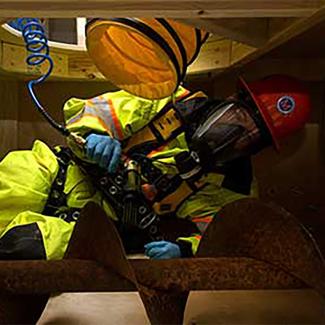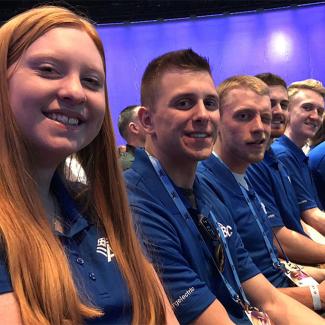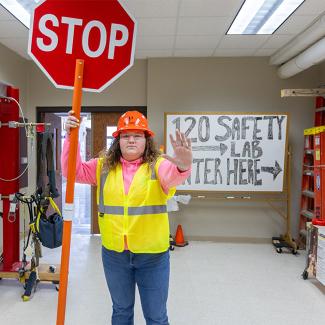Earning a minor in Safety Engineering Management at UW-Platteville is a smart choice for those looking to ensure workplace safety in today's industries. This program provides essential skills and knowledge to tackle safety challenges, protecting workers and meeting regulatory standards. Combining practical and theoretical learning, UW-Platteville prepares students to become safety leaders who are ready to create and maintain safe working environments across various fields.
What you'll learn studying Safety Engineering Management at UW-Platteville
The Department of Applied Engineering Technology Management at the University of Wisconsin-Platteville is nationally recognized as a leader in the construction and manufacturing industries, especially for our focus on safety management.
As a safety engineering program graduate, you will be prepared to work within industry, government, and insurance. In our safety engineering courses, you’ll learn about topics such as safety policies and law, personal protective equipment, safety data sheets, fire protection, and ergonomics.
Every organization desires a safe environment for its employees and customers. While courses focus primarily on safety practices in manufacturing and construction, each safety engineering course teaches valuable knowledge and skills applicable to many fields.
The minor in Safety Engineering Management is certified by the Board of Certified Safety Professionals. The recognition provides students the opportunity to apply with BCSP for the Graduate Safety Practitioner designation after graduation. The GSP meets the credential requirement for the Certified Safety Professional allowing those who hold the designation to waive the Associate Safety Professional certification examination.
Careers in Safety Engineering Management
The safety engineering management field focuses on the creation of work environments where employees can feel safe. By implementing and enforcing appropriate safety standards, occupational safety professionals seek to reduce or eliminate incidents of workplace injuries, illnesses, and fatalities.
A minor in Safety Engineering Management from UW-Platteville unlocks a wide range of career opportunities across multiple industries. Our program addresses the growing need for professionals proficient in risk assessment, hazard identification, and safety policy implementation. By offering hands-on learning in modern, advanced facilities, UW-Platteville ensures graduates are well-prepared with the practical skills needed for successful roles as safety coordinators, engineers, and specialists.
Our safety engineering courses prepare you for a variety of exciting and rewarding careers. Some of the roles our graduates have chosen include:
- Building inspector
- Construction inspector
- Environmental science and protection technician
- Environmental scientist
- Fire inspector
- Injury prevention specialist
- Safety coordinator
- Safety engineer
- Safety trainer
Employers across industry lines must comply with safety requirements for their workers and customers. Whether you want to work in healthcare, construction, engineering, environmental science, or another industry, studying safety engineering management will prepare you to help employers understand and adhere to all applicable safety standards.

More than memorization
At UW-Platteville, we believe experiential learning is the best way to bridge your education with your future career. In addition to classroom education, you will learn through research opportunities, internships with prospective employers in the community, university events, and more.







